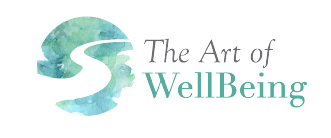It’s a Matter of Practice
While training new leadership coaches last week, I was struck by a helpful distinction I’d never fully considered. There are two kinds of goals. First are what we might call “future” goals. These specific objectives are typically set for some point in the future—weeks, months, or even years ahead. They might involve completing a big project such as completing an educational degree, buying a house, getting a promotion, starting a new business, or running a marathon. They are often specific, measurable, achievable, relevant, and time-bound (SMART) objectives that represent significant milestones or achievements.
The second type of goal is more process than outcome oriented. Ongoing goals are continuous and do not have a specific endpoint; they are part of a leader's ongoing lifestyle or habits. They involve consistent effort and are often related to behaviors, habits, or practices that leaders want to maintain or improve over time. Ongoing goals focus on the process of continuous improvement rather than achieving a specific outcome by a certain deadline. Examples of ongoing goals include exercising regularly, practicing mindfulness or meditation daily, reading a certain number of pages each day, or networking to build relationships consistently.
While audacious future goals provide direction and motivation, my experience in coaching leaders towards holistic wellbeing suggests that ongoing goals, particularly those we might describe as small step practices or micro habits, deliver consistency, progress, and ultimately significant results. In The Art of WellBeing we emphasize the impact of practices and habits to shift a leader’s trajectory. We don’t look for quick solutions or 180-degree shifts.
James Clear, author of Atomic Habits, teaches that it's the small actions we take consistently that lead to significant changes over time. According to Clear, habits are formed through repeated actions, not just through intention or belief. By consistently practicing desired behaviors, one can cultivate habits that lead to desired outcomes. Clear advocates for making small, sustainable changes rather than trying to overhaul one's life all at once.
The concept of “ongoing goals” reminded me of this piece by Thich Nhat Hanh, renowned Vietnamese Buddhist monk whose work still impacts many contemplative Christians:
Our true home is in the present moment.
To live in the present moment is a miracle.
The miracle is not to walk on water.
The miracle is to walk on the green Earth in the present moment,
to appreciate the peace and beauty that are available now.
Peace is all around us in the world and in nature, and within us;
It is in our bodies and our spirits.
Once we learn to touch this peace, we will be healed and transformed.
It is not a matter of faith, it is a matter of practice.
The next time you think about goal setting, remember to consider adding small step practices to your work and personal life. Audacious results happen with consistent practice of even the tiniest steps. This is a miracle.
Walking on the green Earth in the present moment,
Vicki
